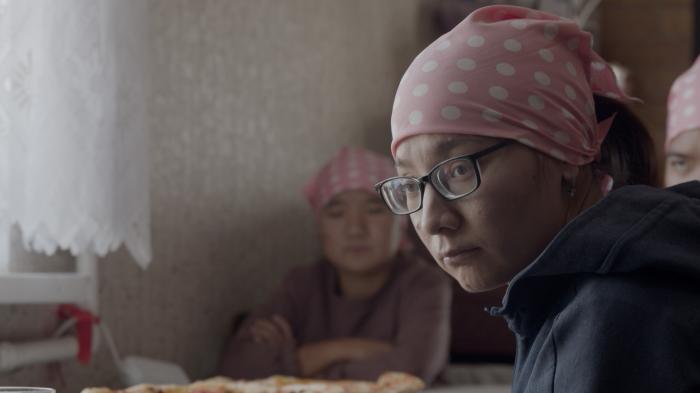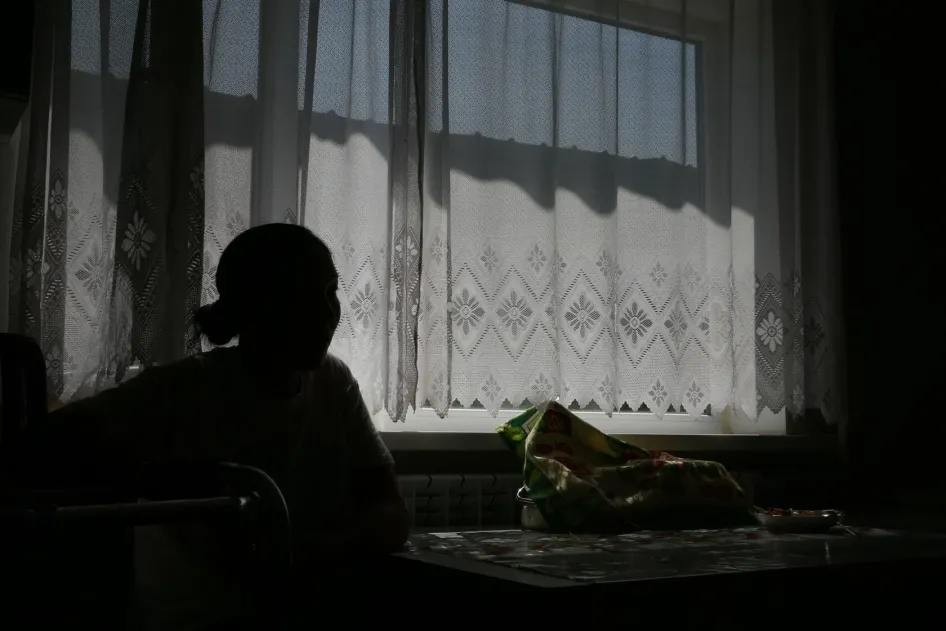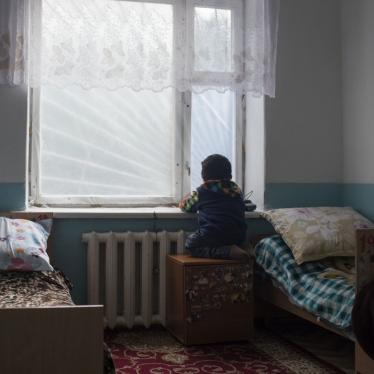- Women and girls with disabilities in Kyrgyzstan experience abuse, including rape, beatings, neglect, and humiliation, often by those closest to them.
- The government has made tackling domestic violence a priority, but the laws don’t take into account the special needs of women and girls with disabilities, leaving them at risk of continued violence.
- Kyrgyzstan should align its legislation with international law, facilitate education and financial independence for women and girls with disabilities, and provide better training for officials.
(Berlin, December 14, 2023) – Women and girls with disabilities in Kyrgyzstan experience abuse,
including rape, beatings, neglect, and humiliation, often by those closest to them, Human Rights Watch said in a report published today. Kyrgyzstan has taken positive steps in recent years to tackle domestic violence and to uphold the rights of people with disabilities and should act now to protect women with disabilities from such violence.
The 63-page report, “‘Abused by Relatives, Ignored by the State’: Domestic Violence against and Neglect of Women and Girls with Disabilities in Kyrgyzstan,” documents how violence by family members or partners often goes unreported and unaddressed due to widespread discrimination against people with disabilities in Kyrgyzstan, especially women and girls. Families often perceive their existence as shameful and hide them from society. Law enforcement and judicial bodies often ignore or downplay reported cases, and a shortage of shelters and other services for survivors of domestic violence who have disabilities makes it harder for them to escape abuse.
“Tackling domestic violence has long been a priority for the Kyrgyz government and civil society, but the laws don’t take into account the special needs of women and girls with disabilities, leaving them at risk of continued violence,” said Syinat Sultanalieva, Central Asia researcher at Human Rights Watch and the report’s author. “Kyrgyzstan has pledged to promote and protect the human rights of women and of people with disabilities and should carry out its promises.”
Two key laws—on the rights and guarantees of people with disabilities, adopted in 2008, and on protection from domestic violence, adopted in 2017—do not include specific provisions to protect women and girls with disabilities from domestic violence. However, both are currently under review in parliament.
Human Rights Watch interviewed 56 survivors of domestic violence who have a disability, service providers, community leaders, and experts in three provinces and documented cases of long-term physical, psychological, sexual, and economic violence by family members, partners, or former partners. Human Rights Watch presented the report findings to relevant Kyrgyz government ministries and reflected government responses in the report.
“Both my uncle and grandfather raped me,” said a 27-year-old woman with a disability. “My uncle started it when I turned 16. He would take me to the shed and rape me there. Once he almost got caught by his own little daughter. She came upon us and asked what he was doing. He closed his hand around my neck and whispered: ‘Laugh!’ I started laughing. And he said to his daughter he was just tickling me.”
“I am nobody for my family,” said a 23-year-old woman with cerebral palsy. “My welfare card has long since been theirs … and I am the scapegoat when my family needs to let off steam. They mostly hit me in the head when beating me because no one will notice it.”
Women and girls with disabilities—like other women and girls—may face pressure from abusers, communities, and even their own families not to seek legal redress. Police and judicial authorities are often reluctant to take cases seriously.
“They [the investigating authorities] just decided that they will not pursue this [case] because the perpetrator had denied everything, saying the girl was making it all up,” said a lawyer specializing in domestic violence. “And people ... in the village ... believed him because the girl had learning [disabilities].”
The government has made some progress in recent years in addressing domestic violence against women and children. Some police officers have received training on communication with people with various types of disability in responding to reports of domestic violence and authorities are developing a “single window” approach to provide services to survivors of sexual violence all in one place. However, Kyrgyzstan can and should do more.
Kyrgyzstan should align its disability rights and domestic violence legislation with the UN Convention on the Rights of People with Disabilities, which it ratified in 2019, and the UN Convention on Elimination of All Forms of Discrimination Against Women, which it ratified in 1997, to ensure human rights-based prevention of and response to violence against women and girls with disabilities.
This should ensure reasonable accommodations to access justice, including requiring training for law enforcement and judicial personnel on recognizing and addressing violence against women and girls with disabilities, as well as accessible procedures to ensure full investigation and prosecution.
The government should ensure that information about protection from violence and seeking justice is available in accessible formats, including Braille, sign language, and easy-to-read materials. It should also ensure access to essential services such as shelter, medical care, and psychosocial support for women and girls with disabilities experiencing violence. It should facilitate initiatives to foster education and financial independence for women and girls with disabilities, which can be key to preventing and interrupting domestic abuse.
Kyrgyzstan’s international partners should strengthen the government’s capacity to address violence against women with disabilities, including through disaggregated data collection and independent monitoring. They should ensure funding mechanisms prioritize and allocate resources for projects addressing the needs of women and girls with disabilities and support grassroots organizations of people with disabilities in their awareness-raising and community empowerment initiatives.
“The Kyrgyz government should lead the fight against normalization of discrimination and violence against women and girls with disabilities,” Sultanalieva said. “The government should seize this moment and revise its laws to ensure that women and girls with disabilities can truly live free from violence, including in their own homes”.











